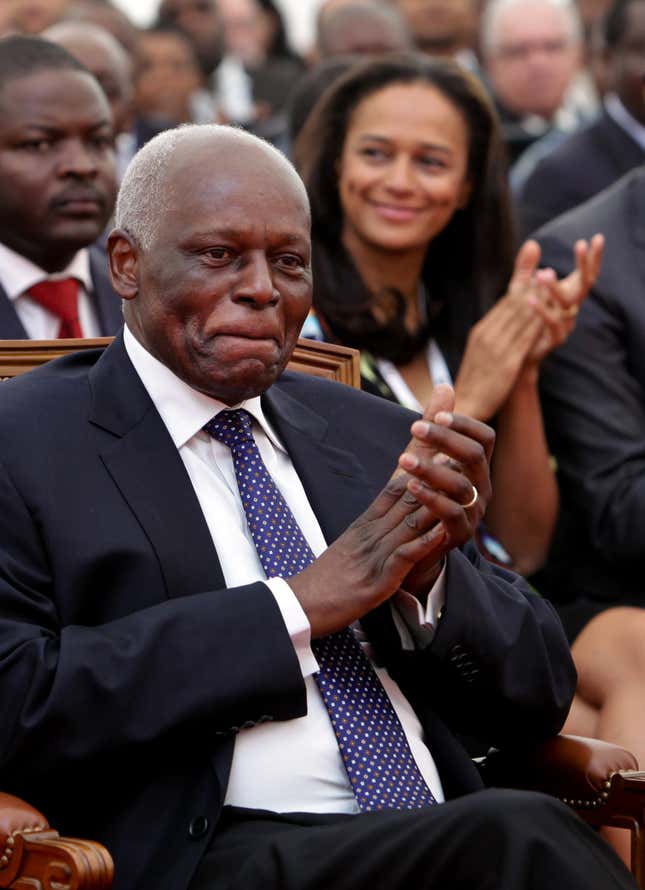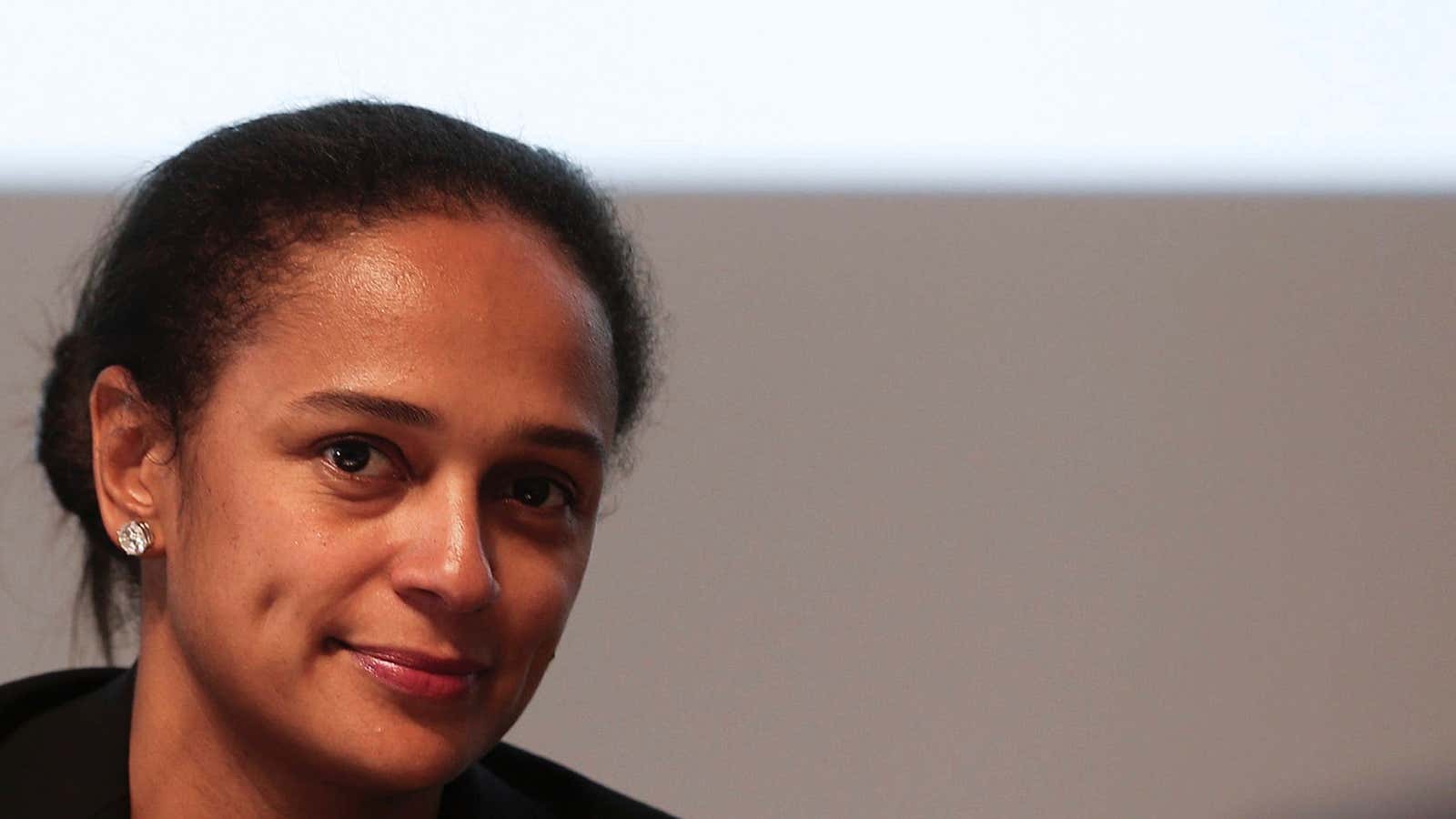Angola’s president is keeping control of state resources in the family. Faced with a struggling economy as global oil prices slump, president Jose Eduardo dos Santos appointed his daughter Isabel as head of the state-owned oil company Sonangol.
In Angola, controlling the oil fields is indelibly linked to controlling the country. His daughter’s appointment signals the reform of Angola’s struggling oil sector. But critics see it just another way for dos Santos to shore up power. Dos Santos who has been in power for 36 years, is the second longest serving head of state in Africa, and has promised to step down in 2018.
Isabel dos Santos, 43, is said to be worth some $3.3 billion, much of which is linked to the country’s fortunes. Her assets include 25% of Angola’s largest mobile telecommunications company, Unitel, a 7% stake in the Portuguese oil and gas firm Galp Energia, a controlling share of a Portuguese cable television company, a lucrative stake in one of Angola’s largest banks Banco BIC and still more. Her 18.6% stake in Portugal’s second largest largest bank BPI is up for sale. Isabel dos Santos also dabbles in retail and owns a Luanda nightclub.
Her vast wealth has attracted scrutiny (paywall) and European officials have called for an investigation into her European Union investments. Lauded investigative journalist and activist Rafael Marques de Morais has accused Isabel dos Santos of directly using state funds as seed capital for her investments. Dos Santos denies that state money has ever funded her business ventures.
Ironically, Isabel dos Santos says she plans to guide Angola’s state-owned oil company through the global oil crisis, using a new model of increased transparency and better governance to drive higher profits, according to a statement published by the state newspaper (published in Portuguese).
In her announcement, dos Santos also said the shuffled board has appointed three new consultancies to guide the process: the Boston Consulting Group, Price Waterhouse Cooper and Vieira de Almeida and Associates, a Portuguese law firm.
Sonangol manages Angola’s lucrative oil and gas reserves, which contribute to about half of the country’s annual GDP while fueling a precarious and lop-sided post-war boom. The drop in global oil prices have hit Angola hard, forcing the country to cut public investment by 53%. Sonangol reported a net profit $710 million last year, down from more than $3 billion, according to Bloomberg.

In the meantime, her brothers Welwitchea José dos Santos and José Paulino dos Santos own Semba, a thriving communications company that is contracted by the state to run various publicity and marketing projects, according to Marques and the company’s own portfolio. It also doubles as a modelling agency. Semba has been accused of receiving funds directly from Angola’s national budget. An unsuccessful online petition begged CNN to stop airing advertisements created by Semba.
